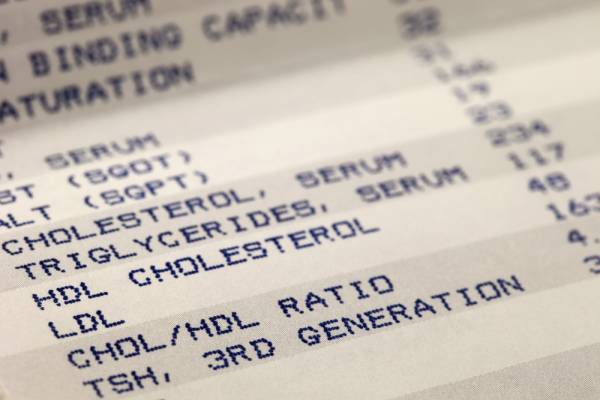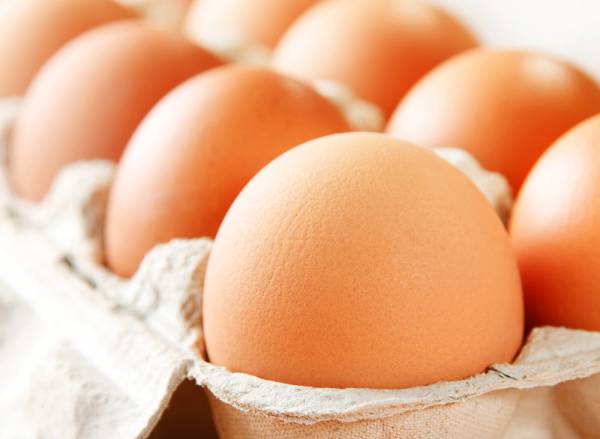Eggs have had a tough ride in recent years. Initially vilified for their high cholesterol content, they were then hailed as a convenient, healthful food for a while. They are now increasingly examined as a potential cause of cardiovascular disease and prostate cancer. However the current evidence shows that for almost everyone eggs are a fantastic source of protein, fat, antioxidants, and vitamins.
Eggs Are Nutritional Powerhouses
If you’re reading the Breaking Muscle website, it’s likely that you have an interest in being healthier and becoming a physical badass of some kind. There are a number of nutrients in eggs that not only support training and recovery, but are great additions to any diet:
Protein: Eggs are little protein bombs. A medium egg contains 6 grams of protein5, half of which is in the yolk. Egg protein is the most easily digested protein available, and also has the best protein utilization and efficiency ratio values.6
These tell you how much of the protein you eat is actually absorbed by the body and used for things like muscle repair and growth. So, you’ll need less protein from your eggs compared to a protein shake (or even a steak) to get the same effect. (Don’t worry, steak, I still love you.)
Antioxidants: Eggs are a rich source of the antioxidants lutein and zeaxanthin. These are the main antioxidants in your eyes, and a number of studies have shown that higher levels of lutein and zeaxanthin in the diet are associated with a reduced risk of cataracts and macular degeneration.7
In the Beaver Dam Eye study of 1,354 individuals, the participants under 65 who ate the most eggs had a 40% reduction in the risk of cataracts over ten years.8 Studies also suggest that lutein and zeaxanthin have anti-cancer properties, particularly in breast and lung cancer.7
Choline: Choline has two main functions in the body. First, it is an essential part of your cell membranes, and ensures they remain intact. Second, it provides the message that turns nerve impulses from the brain into muscle contractions. No matter how hard you think, unless you have adequate choline, you just aren’t going to pick up that barbell. We know that choline levels drop after endurance exercise, and choline supplementation speeds-up recovery:9
- Lactic acid is cleared in cyclists and runners up to 40% faster when they supplement with choline.
- Heart rate returns to normal more quickly after exercise if choline is taken beforehand.
On a choline-per-calorie basis, eggs are the best food source of choline you can find, as well as an excellent source of vitamins A, B1, B6, B12, D, and folate.10 As many vitamins are fat-soluble, the key to your body absorbing them is consuming them with some fat. Conveniently, eggs pre-package their vitamins in a nice, rich yolk.
The Cholesterol in Eggs Is Good For You
We now know the cholesterol in your diet has little impact on the cholesterol in your blood. In fact, only 30% of us, known as hyper-responders, will see a meaningful increase in blood cholesterol after eating foods containing cholesterol.
The majority of the evidence also shows that eating eggs is beneficial to our cholesterol profile (the amounts of good HDL cholesterol and bad LDL cholesterol in the blood). It is worth mentioning here that not all LDL is created equal. The more buoyant and fluffy your LDL is, the lower your risk of cardiovascular disease.

- An analysis of 167 cholesterol-feeding studies in 3,519 patients over forty years showed that one egg per day increased cholesterol by less than 1-2% in hyper-responders. The hypo-responders saw less than half of that.1
- Both the Multiple Risk Factor Intervention Trial (12,847 men) and the Third National Health and Nutrition Examination Survey (20,000 people) showed those who ate the most eggs had the lowest cholesterol levels.2
- The largest study to date examined egg consumption in the Nurses’ Health Study (80,082 women) and the Health Professionals Follow-up Study (37,851 men), and found those eating seven or more eggs per week had no greater risk of coronary heart disease compared to those eating fewer than one egg per week.3
- Even when an increase in cholesterol is seen, there is an increase in both good HDL cholesterol and bad LDL cholesterol, with no change in the LDL:HDL ratio, which is the main predictor of cardiovascular disease.4
- One study showed that eating three eggs a day makes LDL more buoyant, which reduces its ability to cause atherosclerosis. There was also no increase in the risk of LDL oxidation (another risk factor for cardiovascular disease), probably due to the high levels of antioxidants in egg yolk. So, even if you are a hyper-responder and eggs increase your cholesterol levels slightly, you will have fluffier, happier LDL as a result.11
Eggs Are Yummy…
If you’ve never tried eating half a dozen eggs scrambled in a tablespoon of coconut butter for breakfast, or before a training session, you are yet to discover the true magical powers of eggs.
…And Convenient
You don’t get much more nutrition per penny than an egg. Eggs are a cheap, self-contained addition to lunch boxes, and can form the basis of a quick, healthy meal at any time. Take some leftovers or some vegetables, then add a few eggs and cook slowly or place under the grill – a frittata in minutes!
Better Eggs Are Better – You Need Omega-3 Fatty Acids
While your average egg is good, we know a better quality egg will give you that little bit extra. Free-range eggs are higher in omega-3s.12

Organic eggs haven’t been shown to have a higher nutrient content than eggs from caged hens, but many people prefer their animal products to come from animals with better welfare conditions and reduced pesticide and antibiotic use.13
Should We All Be Eating More Eggs?
We can only do our best based on the information we currently have. We know dietary patterns are much more important than individual components.2 So, if all your eggs are eaten with a stack of pancakes, I can’t promise you’ll get the full benefit.
Also, the main problem with studying diet and disease is that it’s almost impossible to accurately calculate the intake of individual foods based on a questionnaire. Quick – try and remember how many eggs you ate four weeks ago. Hard, isn’t it?
However, the Nurses’ Health Study and Health Professionals Follow-up Study do show an increased risk of heart disease in those who have diabetes, especially if eating more than one egg per day.3 Diabetes changes the way the body handles cholesterol, and those afflicted with it should limit egg intake to around three per week.
If men in your family have a history of developing prostate cancer, you may also want to consider only having eggs on occasion. The Health Professionals Follow-up Study recently reported that men who ate 2.5 eggs or more per week had an 81% increased chance of developing more aggressive prostate cancer.14
The theory is that choline and cholesterol (an important part of testosterone production) may make prostate cancer more likely to metastasize. In the same group of men, those with the highest choline intake had a 70% increased risk of lethal or metastatic prostate cancer. Interestingly, there was no association between prostate cancer and the fat-soluble types of choline found in eggs.
The risk appears to come from water-soluble types of choline, almost all of which were from fat-reduced dairy products.15 This suggests the story is far from clear, as highlighted by the fact the Netherlands Cohort Study of 58,279 men found no association between eggs and prostate cancer risk.16

Though researchers do try to isolate the effects of eggs alone, it is worth noting that those who ate the most eggs in the Health Professionals study tended to have a number of risk factors for cardiovascular disease and cancer to start with.
On average, they had a higher BMI, engaged in less physical activity, and were more likely to have a history of smoking and diabetes. Does eating eggs make you more likely to smoke and skip workouts? Probably not. If you are active and generally healthy, the research still shows that eggs are a great, tasty source of protein and vitamins.
Eat Eggs
Eggs are nutrient-rich, cheap and convenient. They can improve your recovery, and reduce your risk of eye and heart disease. As part of the healthier lifestyle that we should all be trying to work towards, I hope that you include eggs in your diet, and are stronger, faster and happier as a result.
References:
1. McNamara DJ. The impact of egg limitations on coronary heart disease risk: do the numbers add up? J Am Coll Nutr. 2000 Oct;19(5 Suppl):540S-548S.
2. Kritchevsky SB. A review of scientific research and recommendations regarding eggs. J Am Coll Nutr. 2004 Dec;23(6 Suppl):596S-600S.
3. Hu FB, et al. A prospective study of egg consumption and risk of cardiovascular disease in men and women. JAMA. 1999 Apr 21;281(15):1387-94.
4. Fernandez ML. Dietary cholesterol provided by eggs and plasma lipoproteins in healthy populations. Curr Opin Clin Nutr Metab Care. 2006 Jan;9(1):8-12.
5. American Egg Board – Egg Nutrition Facts: https://www.incredibleegg.org/?site=a
6. Hoffman J R, Falvo M J. “Protein – Which is Best.” 2004 J Sport Sci Med (3): 118–30.
7. Ribaya-Mercado JD, Blumberg JB. Lutein and zeaxanthin and their potential roles in disease prevention. J Am Coll Nutr. 2004 Dec;23(6 Suppl):567S-587S.
8. Lyle BJ, et al. Antioxidant intake and risk of incident age-related nuclear cataracts in the Beaver Dam Eye Study. Am J Epidemiol. 1999 May 1;149(9):801-9.
9. Jäger R, Purpura M, Kingsley M. Phospholipids and sports performance. J Int Soc Sports Nutr. 2007 Jul 25;4:5.
10. USDA National Nutrition Database: https://fdc.nal.usda.gov/
11. Herron KL, et al. High intake of cholesterol results in less atherogenic low-density lipoprotein particles in men and women independent of response classification. Metabolism. 2004 Jun;53(6):823-30.
12. Anderson KE. Comparison of fatty acid, cholesterol, and vitamin A and E composition in eggs from hens housed in conventional cage and range production facilities. Poult Sci. 2011 Jul;90(7):1600-8.
13. Mesías FJ, et al. Functional and organic eggs as an alternative to conventional production: a conjoint analysis of consumers’ preferences. J Sci Food Agric. 2011 Feb;91(3):532-8.
14. Richman EL, et al. Egg, red meat, and poultry intake and risk of lethal prostate cancer in the prostate-specific antigen-era: incidence and survival. Cancer Prev Res (Phila). 2011 Dec;4(12):2110-21.
15. Richman EL, et al. Choline intake and risk of lethal prostate cancer: incidence and survival. Am J Clin Nutr. 2012 Oct;96(4):855-63.
16. Schuurman AG, et al. Animal products, calcium and protein and prostate cancer risk in The Netherlands Cohort Study. Br J Cancer. 1999 Jun;80(7):1107-13.
Photos courtesy of Shutterstock.






